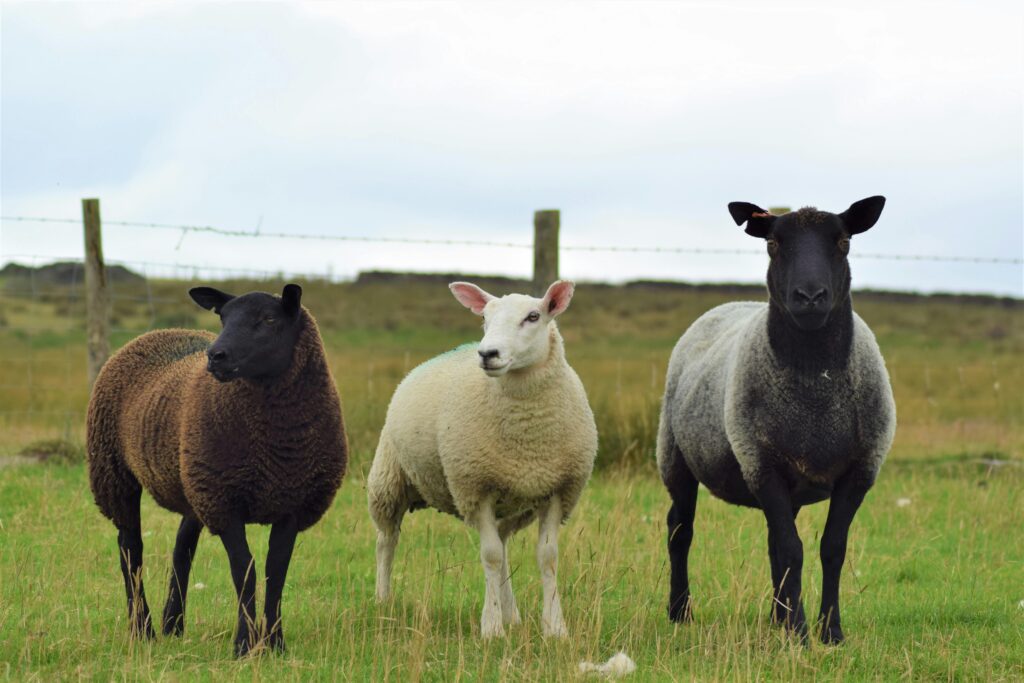
Sheep are among the most versatile livestock animals, valued for their wool, meat, and milk production. With hundreds of breeds worldwide, understanding the characteristics of different sheep breeds can help farmers, hobbyists, and livestock enthusiasts make informed decisions. This guide consolidates the best insights into wool, hair, meat, and dairy breeds and provides practical advice for choosing the right breed for your farm or project.
Table of Contents
- What Are Sheep Breeds?
- Wool Sheep: The Classic Breeds
- Merino Sheep
- Rambouillet Sheep
- Border Leicester
- Hair Sheep Breeds: Low-Maintenance Options
- Katahdin Sheep
- Dorper Sheep
- St. Croix Sheep
- Meat Breeds: High-Yield Producers
- Texel Sheep
- Suffolk Sheep
- Hampshire Sheep
- Dairy Breeds: Milk Production Excellence
- East Friesian Sheep
- Awassi Sheep
- Dual-Purpose Breeds: The Best of Both Worlds
- Corriedale Sheep
- Dorset Horn
- Unique and Rare Breeds
- Icelandic Sheep
- Wiltshire Horn
- Norfolk Horned Sheep
- Factors to Consider When Choosing a Sheep Breed
- Conclusion
1. How Are Sheep Breeds Determined?
Sheep breeds are categorized by their primary purpose: wool, meat, or milk production. Some breeds, called dual-purpose breeds, excel in multiple areas, making them versatile options for small farms or breeding programs. Additionally, breeds have been selectively developed to adapt to specific climates, such as arid regions or mountainous terrain, ensuring optimal performance in various environmental conditions.
2. Wool Sheep: The Classic Breeds
Merino Sheep
Merino sheep are renowned for their fine wool and adaptability. Their fleece, known as merino wool, is highly sought after for its softness and durability. Originating from Spain, this breed is ideal for farmers focused on wool production in both temperate and colder climates.
Rambouillet Sheep
A descendant of the Merino, Rambouillet sheep are celebrated for their dense fleece and ability to thrive in colder climates. Their wool is perfect for producing warm clothing and is considered a cornerstone of the wool industry.
Border Leicester
Known for their long wool and calm temperament, Border Leicester sheep produce coarser fleece, which is used to make sturdy textiles such as carpets and rugs.
3. Hair Sheep Breeds: Low-Maintenance Options
Katahdin Sheep
Katahdins are a shedding sheep breed, eliminating the need for shearing. Their natural hair coat makes them perfect for meat production in arid climates. Their parasite resistance and adaptability make them a top choice for low-maintenance farming.
Dorper Sheep
Originating in South Africa, Dorper sheep are ideal for arid regions due to their heat tolerance and ability to thrive on sparse forage. They are a dual-purpose breed, excelling in both meat production and easy care.
St. Croix Sheep
St. Croix sheep from the Virgin Islands are known for their parasite resistance and adaptability to tropical climates. Their hair coat eliminates the need for shearing, making them a convenient option for farmers in warmer regions.
4. Meat Breeds: High-Yield Producers
Texel Sheep
Texels are a favorite because of their muscular build and rapid growth. They are excellent for meat production, and their tender, flavorful lamb is a staple in the commercial meat industry.
Suffolk Sheep
Suffolks are a classic meat sheep breed known for their fast growth rates and desirable traits, such as high lambing percentages. They are a versatile option for diverse climates.
Hampshire Sheep
Hampshire sheep are valued for their robust frames and superior meat quality. Their docile nature and adaptability make them ideal for both small farms and larger commercial operations.
5. Dairy Breeds: Milk Production Excellence
East Friesian Sheep
East Friesians are regarded as the best dairy breed. They produce high yields of milk used for gourmet cheeses like feta and ricotta. They require excellent care and are perfect for farmers focused on milk production.
Awassi Sheep
Originating in the Middle East, Awassi sheep thrive in arid climates and produce rich, high-fat milk. They are prized for their resilience and adaptability.
6. Dual-Purpose Breeds: The Best of Both Worlds
Corriedale Sheep
Corriedales are a versatile breed that excels in fine wool and meat production. Their adaptability makes them a popular choice for small flocks.
Dorset Horn
Dorsets are unique for their ability to lamb year-round, making them invaluable in breeding programs. They are reliable wool and meat producers, making them ideal for diverse farming needs.
7. Unique and Rare Breeds
Icelandic Sheep
Icelandic sheep, whose lineage dates back to Viking settlers, are renowned for their wool quality and adaptability to mountainous terrain. Their fleece comes in various colors, including dark chocolate brown and black.
Wiltshire Horn
A shedding sheep breed, Wiltshire Horns are valued for their clean hair coat and suitability for meat production.
Norfolk Horned Sheep
Norfolk horned sheep are an ancient English breed recognized for their resilience and ability to thrive in colder climates.
8. Factors to Consider When Choosing a Sheep Breed
- Climate Adaptability: Select breeds suited to your region, whether arid regions or colder climates.
- Primary Purpose: Decide whether to focus on wool, meat, or milk production.
- Farm Size: Smaller farms may benefit from low-maintenance hair sheep breeds or dual-purpose breeds.
- Breeding Goals: Consider desirable traits for your breeding program, such as parasite resistance or high lambing percentages.
9. Why Selecting the Right Breed is Key
Selecting the right sheep breed is key to achieving your farming goals. Whether you’re drawn to the luxurious fleece of Merino sheep, the easy-care of hair sheep breeds, or the high yields of meat breeds, there’s a perfect match for every need.
At Livestock Show Specs, we provide resources to help farmers and enthusiasts succeed. From detailed breed profiles to tips on breeding programs, nutrition, and show preparation, our platform empowers you to unlock the potential of your flock. Explore our community today and connect with like-minded livestock enthusiasts!
Spencer Schwartz